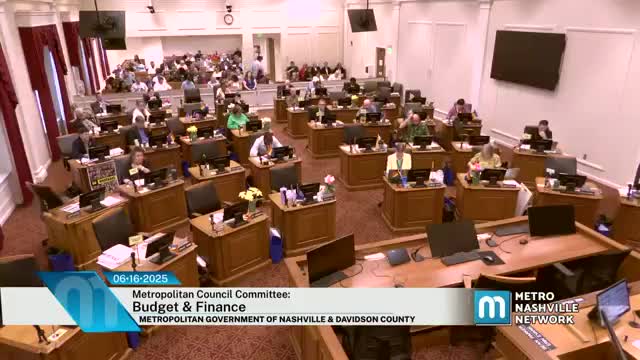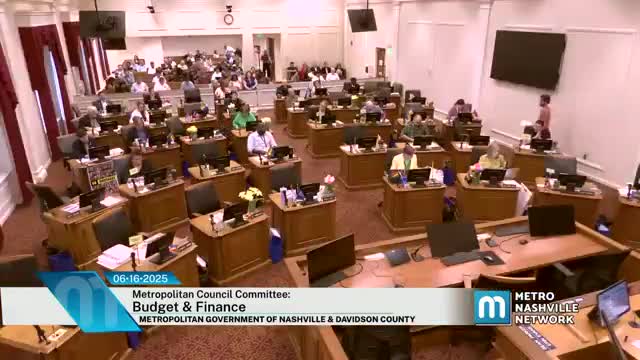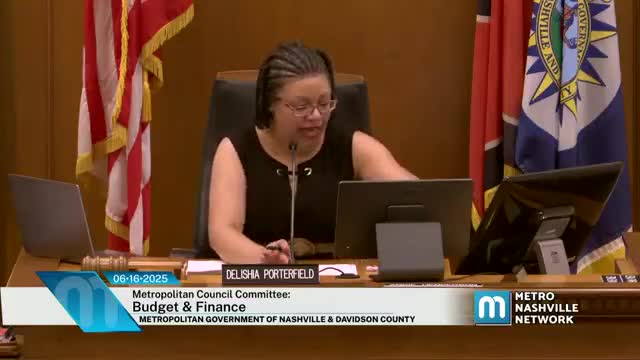Article not found
This article is no longer available. But don't worry—we've gathered other articles that discuss the same topic.

Committee approves pay-plan increases for general employees, police, fire and health; several grants and resolutions pass on consent

Committee adopts Porterfield budget substitute with several targeted amendments; cuts proposed to multiple departments

